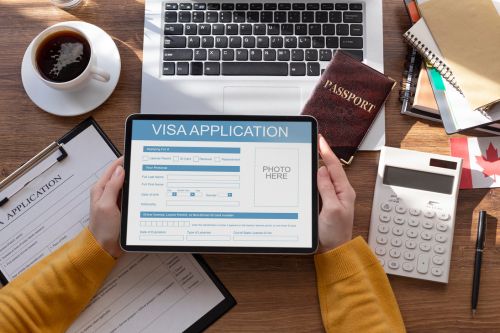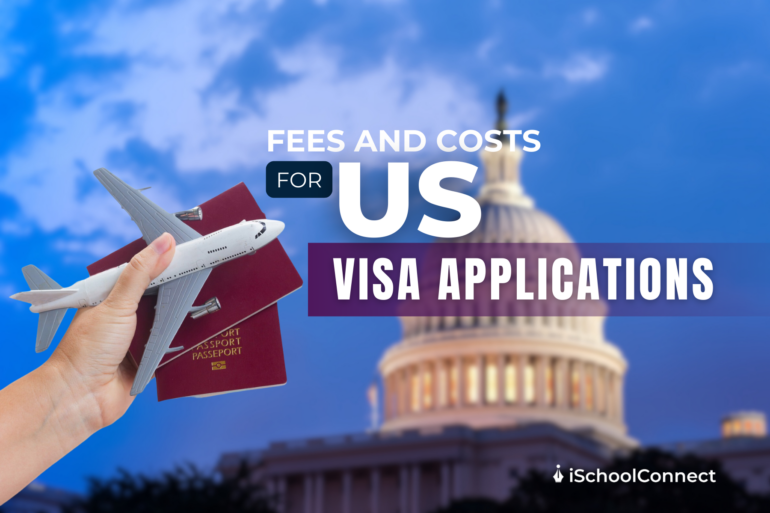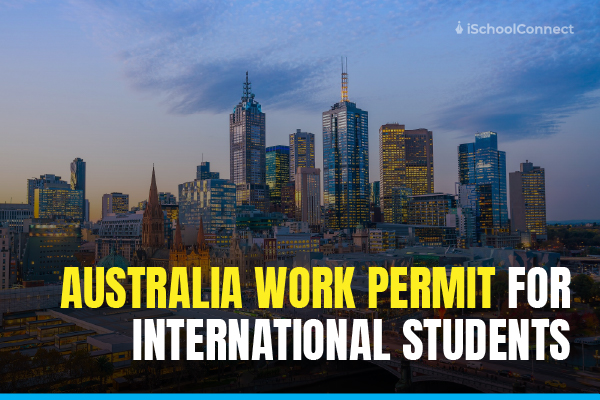Table of Contents
Navigating the costs of US visas
The United States is a dream destination for many individuals from around the world. Whether you are seeking employment, education, or simply looking to explore the vast landscapes and diverse cultures of the country, obtaining a US visa is a crucial step in your journey. However, along with the excitement of visiting the United States, it’s essential to understand the associated costs and fees involved in the visa application process. In this comprehensive guide, we will break down the US visa application fees and costs, ensuring you are well-prepared for your visa journey.
Fees for different types of US visas
Here, we will provide you with a detailed analysis of the fees for various U.S. visa types, ensuring that you are well informed about the financial aspects of your visa application.
Non-immigrant visa fees
The US offers various categories of visas, including non-immigrant and immigrant visas. Non-immigrant visas are for temporary stays, such as tourism, business, education, or employment. The fees for non-immigrant visas may vary depending on the visa category. Here are some common non-immigrant visa fees-
- B-1 and B-2 Visas (Business and Tourism)- The fee for the B-1 and B-2 visas is $160.
- H-1B Visa (Specialty Occupation Workers)- The application fee for H-1B visa usually ranges from $190 to $560, depending on the size of the company and the type of petition.
- F-1 Visa (Student Visa)- The fee for the F-1 visa application, which includes the SEVIS fee, is approximately $350.
- J-1 Visa (Exchange Visitor Visa)- The application fee for the J-1 visa might be around $160.
- L-1 Visa (Intracompany Transferee Visa)- The fee for the L-1 visa ranges from $190 to $560, depending on the size of the company.
These fees are subject to change, so it’s crucial to verify the current fee structure on the official U.S. Department of State website or with the U.S. embassy or consulate in your home country.
Immigrant visa fees
Immigrant visas are for those applicants who intend to reside permanently in the United States. The fees for immigrant visas also vary depending on the specific category. Some common immigrant visa fees include-
- Family-sponsored visa- The fees for family-sponsored immigrant visas range from $325 to $345.
- Employment-based visa- The fees for employment-based immigrant visas depend on the specific category and typically range from $700 to $345.
- Diversity Visa (DV) Lottery- If you are one of the lucky winners of the Diversity Visa Lottery, you will need to pay a fee of approximately $330.
Visa application processing fees

In addition to the visa fees, there are other processing fees that applicants may need to pay. Here are some of the common ones-
- MRV (Machine Readable Visa) fee- This fee is required for most non-immigrant visa applicants, and you must pay it before scheduling a visa interview. As of my last knowledge update, the MRV fee was $160 for most visa categories. However, fees may change, so be sure to check the current fee on the U.S. Department of State website.
- SEVIS fee- The Student and Exchange Visitor Information System (SEVIS) fee is required for F, M, and J visa applicants. It is $350 for F and M visa applicants and $220 for J visa applicants.
Visa interview costs
Once you’ve paid the necessary visa application and processing fees, you’ll need to schedule an appointment for a visa interview at the U.S. embassy or consulate in your home country. While the interview itself does not have a separate fee, there are costs associated with preparing for the interview, such as travel expenses to the interview location and any required medical examinations.
Visa renewal and extension costs
If you need to renew or extend your visa while in the United States, there are additional fees to consider. The cost for visa renewal or extension varies depending on the visa category and specific circumstances. It’s recommended to consult the U.S. Citizenship and Immigration Services (USCIS) website or contact the USCIS for the most recent information on these fees.
Optional services
In some cases, you may choose to expedite your visa application process or opt for additional services, such as courier delivery or premium processing. These services come with their associated costs, and the fees for fast processing may vary depending on the specific circumstances. It’s important to carefully review the optional services available and their associated fees when planning your visa application.
Remember that visa application fees are non-refundable, so it’s crucial to prepare your application meticulously. You can seek professional guidance if necessary to increase your chances of approval. By informing yourself about the costs and fees involved, you can better plan your journey to the United States and ensure a smooth and efficient application process.
Key takeaways
- Obtaining a U.S. visa is a crucial step for those looking to explore opportunities, education, employment, or tourism in the United States.
- It’s essential to understand the associated costs and fees involved in the U.S. visa application process to plan your journey effectively.
- The fees for different types of U.S. visas can vary significantly, so it’s crucial to research and confirm the current fee structure for your specific visa category.
- Visa application fees are generally non-refundable, so it’s crucial to prepare your application thoroughly and seek professional guidance, if needed, to enhance your chances of approval.
If you find this blog informative and have any questions or require further assistance with your study abroad queries, please don’t hesitate to reach out to us. Click here to contact our team, and we would be delighted to assist you.
Liked this blog? Read next: Types of US Visas | Everything to know about the visa application!
FAQs
Q1. What are the common reasons for visa denials?
Ans- Visa applications can be denied for various reasons, including insufficient documentation, ineligibility, and concerns about the applicant’s intent to return to their home country.
Q2. Can I extend or renew my US visa?
Ans- You can extend or renew certain visa types. However, the process and eligibility criteria vary, so it’s best to consult with the US Citizenship and Immigration Services (USCIS).
Q3. What is the Visa Bulletin, and how does it impact immigrant visa applicants?
Ans- The Visa Bulletin is a monthly publication that indicates the availability of immigrant visa numbers. It’s essential to track the progress of your immigrant visa application, particularly in family-sponsored and employment-based categories.






